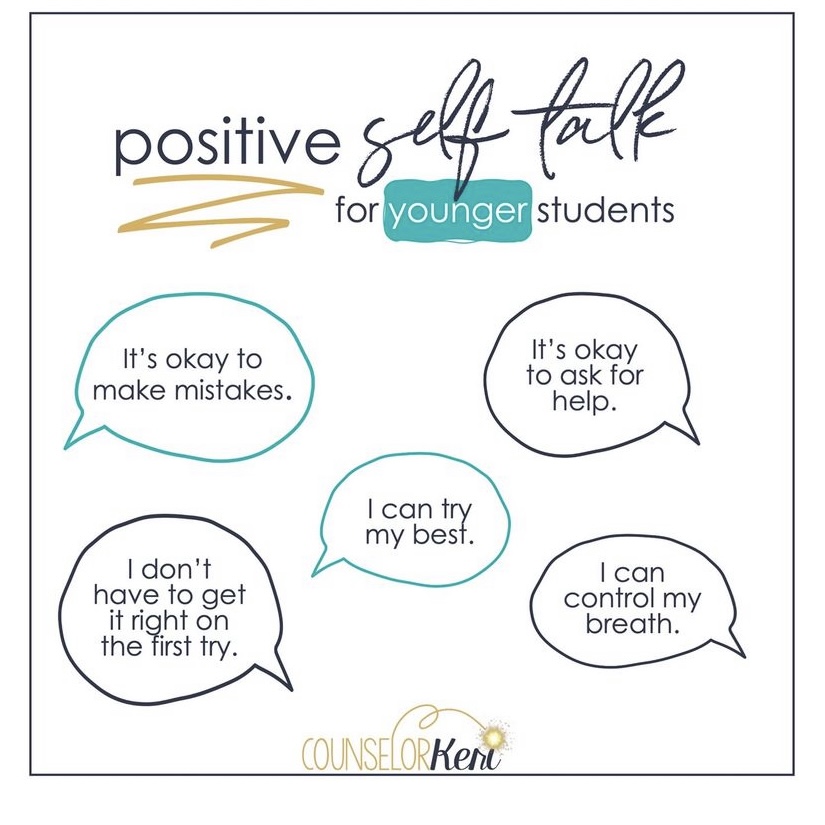Have you heard the term self-talk? Self-talk is what you say to yourself, your internal dialogue. That internal dialogue is crucial for our own mental health and self-love. This concept is being taught in many elementary schools as part of school counselor’s curriculum.
In my upcoming children’s book, “The Kindness Machine,” I discuss ideas to be kind to others but also kindness to ourselves. I have struggled to find a children’s book that encourages children to be kind to themselves. If you know of a book that discuss this concept, please share it with me: author@christinadankert.com.
I’m an elementary teacher. When the pandemic hit and shut down the schools in March of 2020, I continued to have weekly team meetings with my three other amazing teammates. We would get on a video call and check in with each other, more so for mental health and supporting one another than anything else. The phrase that we all continued telling each other was, “Give yourself grace and be kind to yourself.” This is hard for many adults…but why?
I’d like to think that it is because we have not heard the message from an early age and then have to work harder to shift our mindset to promote positive self-talk. Last week, I talked about children being like sponges to absorb and clay to mold. As we age, ideas and concepts are less moldable. Shifting mindset isn’t impossible as adults, but we definitely have to work harder.
Regardless of your age or level of confidence, we all continue to work on our own positive self-talk as adults. We must help the little people in our lives learn this early on. Let’s be clear though, promoting positive self-talk is not a constant stream of compliments and sweeping challenges under the rug to avoid frustration. Promoting self-talk with a child means to call out those challenges but in a way that still allows for growth.
| If a child says this… | Help them by saying this… |
| This is too hard. | I see that is a challenge, but let’s try it again. |
| I’ll make a mistake. | Every time you try, you’ll get better. |
| That’s good enough. | What can you do to make it even better? |
I absolutely HATE the phrase, “Practice makes perfect.” I don’t give a woot if something is perfect, let’s work on making something better. Each year my students quickly learn that there are two phrases that I don’t love:
“Practice makes perfect.” – I explain that I am not looking for perfect because if it’s perfect I have to send them to the next grade and I’d like to keep them with me for a whole year. 🙂
“That’s so easy.” – I explain that something easy for one student might be an unbelievable challenge for another. Students will catch themself as the year goes on and if “that’s so easy” slips out, they usually add, “for me, but other things are hard for me.”
The best part of positive self-talk is that it build confidence, promotes risk taking, boosts self-love, shifts attitude, and helps a person deal with changes/challenges. I don’t know about you, but I believe all of us can benefit from that list of positives.
Today I challenge you to look in the mirror and give yourself a positive self-talk pep talk, but there is a catch. The comment can NOT ABOUT THE WAY YOU LOOK. Give yourself a comment regarding your character, who you are inside. Struggling? Here is a list you can choose from and I invite and encourage you to keep coming back to the list and then add to it:
“I can do this.”
“Let me take a chance.”
“I can learn and grow from this new experience.”
“I am always improving.”
And my absolute favorite, from motivational speaker and powerhouse, McKenna Reitz, “I AM ENOUGH.” Read that again. YOU ARE ENOUGH.
As always, I appreciate you taking the time to read. I hope that you take a few minutes for yourself this week to positively improve your self-talk so that we can all work together to help improve the self-talk of those wonderful little humans surrounding us.

I LOVE this and actually really needed to hear this today! I’m giving myself a pep talk now!!
LikeLike
I love that! This makes me so happy! You got this.
LikeLike
It is good practice to have that internal positive pep talk daily. Modeling it to kids is the first step in developing their internal dialog.
LikeLiked by 1 person
I agree, 100%. They absorb so much through modeling.
LikeLike